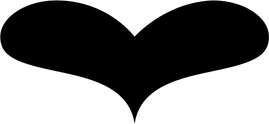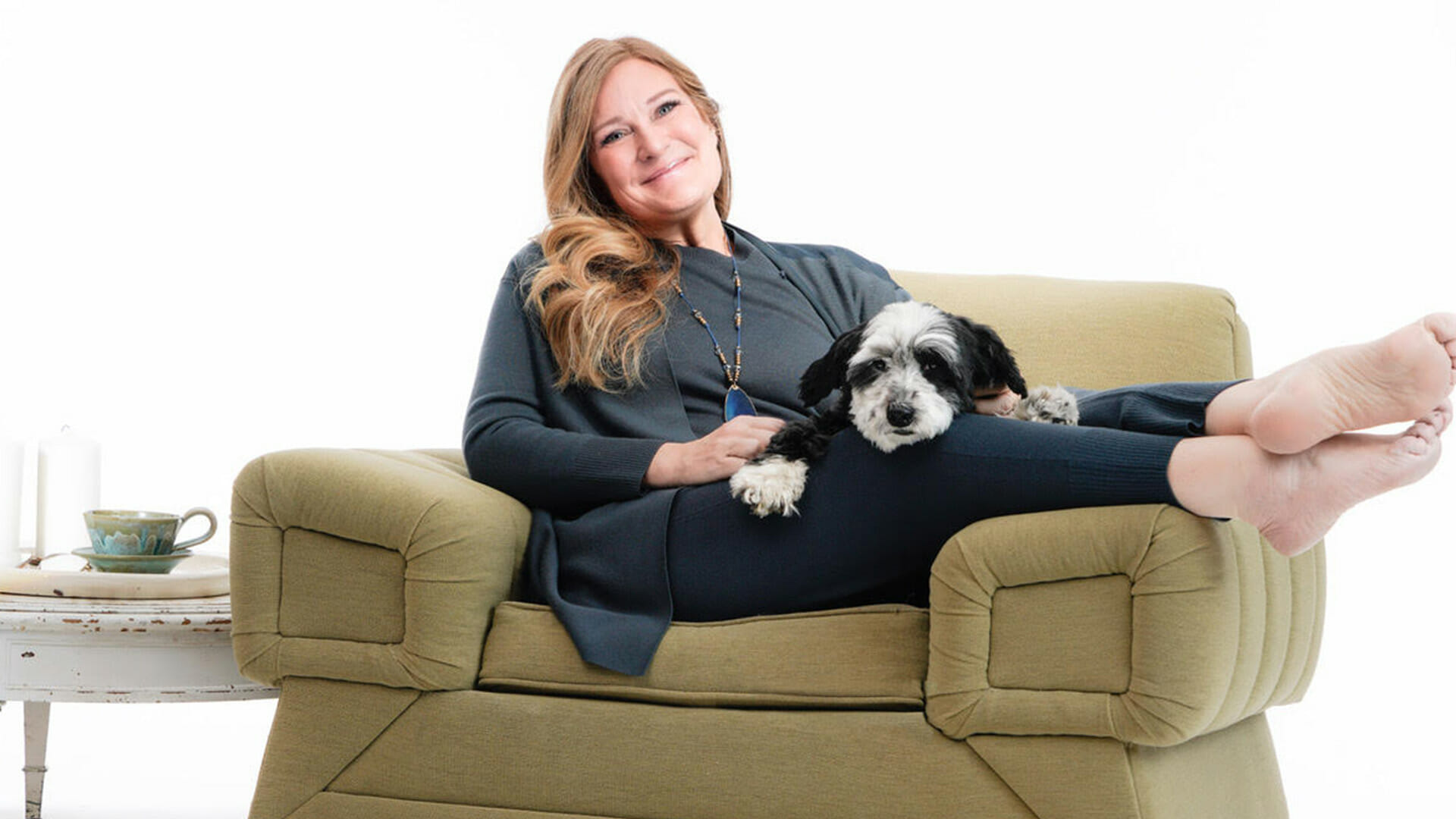Kindness is key
Kari Warberg Block is the Founder and CEO of EarthKind, an eco-friendly pest control product that keeps bugs and critters at bay without harming or killing them. She started EarthKind with just some seeds and a powerful vision for a kinder world—for people and critters.
In this episode of the Building While Flying podcast, Kari shares her founder’s story: from growing up poor to a near-death accident, to building EarthKind into an 8-figure company and making the Earth a better place. Her biggest message to listeners is, “With a lot of passion and tenacity, and dog-headed discipline, you can make some amazing things happen.”
Want to try EarthKind products in your home? Browse their products here or find them in a retailer near you.
NOTE: EarthKind is a client of The Sasha Group.
”“With a lot of passion and tenacity, and dog-headed discipline, you can make some amazing things happen.”
Kari Warberg
Transcription
Katie Hankinson (00:00):
Welcome to building while flying a Sasha group podcast, where we interview business leaders about how they tackle challenges, stay resilient and navigate ever-changing skies.
Joe Quattrone (00:12):
Welcome to the building while flying podcast. My name is Joe Quattrone and today my guest is Kari Warburg block, founder and CEO of Earthkind. Kari challenged, an industry to reduce toxic pesticide use in homes and businesses by offering a naturally smarter way to keep pests out without having to kill or poison them. Kari was the first to develop manufacture and commercialize poison free rodent in insect repellants for farm and home use once a mom on food stamps, Kari started Earthkind with nothing more than a package of garden seeds in a vision and has built it into the eight figure company. It is today. Kari Warburg block. Welcome to building offline,
Kari Warberg (00:49):
So happy to be here today, Joe.
Joe Quattrone (00:52):
Okay, awesome. Well, we’re very happy to have you and you know, just doing the, the research that I have, you know, prior to jumping on the call with you and hearing from a few folks firsthand, uh, what kind of company, uh, you run and what kind of leader you are? Uh, we’re very excited for this conversation, but let’s go back to the beginning a little bit. What were you doing prior to founding earth? Kind? What was your career track? Did you always want to get into running a, a pesticide, uh, brand, uh, or were there other aspirations at one point?
Kari Warberg (01:22):
No, I never imagined getting into the sexy business of pest control. I grew up with an entomologist father and there was critters around the house all the time, critters and boxes and cages. And I used to be, I had nightmares that the spiders were gonna come alive and get me, which is not unlike a lot of people today, right. Especially kids. Um, I never thought I’d go into it. Um, but I found myself, I was a farm wife, had a problem with rodents on our farm, getting into our tractor cabs, chewing up the wires, ruining things. It cost a lot of money. And I had kids, I had pets and poisons were not an option. I called every company out there. They basically laughed me off the line, made me feel terrible. Like I was stupid for wanting something that could actually solve the problem without putting poison in the environment or risking wildlife or my kids or my pets.
Kari Warberg (02:19):
Right. And, um, I kind of stewed about it in a 1995. I was selling organic produce at a farmer’s market. And I got hit by a 72 year old lady on a tour bike with a side car, basically long story short. I died for three minutes. I laid on my back for a year and then I kind of lost all sense of embarrassment or worry or fear or anything like that. And I thought, well, you know, I’m here for a reason. Maybe this is the reason. And it just, it, it started to bloom from there.
Joe Quattrone (02:52):
Wow. So you were, you were dead for three minutes. What? I mean, obviously it might be hard to ask. What was that like? I don’t know what condition you were in, but was there, was there some sort of an out of body experience, a near death experience? Like where did, did were like, how was <laugh>, how did that even happen? And like what was going on for those three minutes? And what happened for that year afterwards that, uh, was there like vivid dreams? Like how did this kind of all come together?
Kari Warberg (03:18):
So nothing happened to me. I was like, I don’t remember anything, but I woke up and my doctor was standing over me and he said, you are lucky to be a live little girl. I don’t wanna hear any and moan NOI know you got a long road ahead. So I assumed that I had lost a leg because the last thing before they put me under was sign here, we’ll take your leg to preserve your life if needed. So that’s what I had thought. Then he was, he turned white. He told me, he said there was an angel in the room. He was an atheist. It totally changed his belief system. He left medicine. And so these other people had this experience. I got nothing. <laugh> <laugh> I just laid there. I’m like, there’s gotta be a message in this. There must be something.
Kari Warberg (04:06):
And, um, you know, I loved my life on the farm. I loved being an organic farmer. Yeah. We had 1100 acres. It was amazing. Cuz I grew up all of my life in big cities. Yeah. Moving to a different school every year of my life and the, these were roots and it was community and it was such a healthy and an amazing lifestyle. Although we were broke as <laugh> it was like, okay, but maybe I can make some money from this. Yeah. And then I hatched it up. I’m like, you know, I might as well invent something that will get rid of pests without having to harm the environment and then truly get rid of them. Mm-hmm <affirmative> in a way that makes sense. And so farmers were my first choice. So that, that was really my first product invention was a product to keep rode out of the tractor cabs. And it was an amazing success. Yeah.
Joe Quattrone (04:55):
Wow. I mean, and now this is, um, this is back in the nineties, correct. And we’re talking about the 99% of the market was harmful pesticides and products that just didn’t uh, weren’t friendly to the environment or friendly to pesticide.
Kari Warberg (05:09):
Oh yeah. 88%, 88% were toxic. This industry of pest control does not take well to an outsider, especially one, without a PhD for God’s sakes. I barely graduated from high school. You know, I was on food stamps by worldly standards. I’d probably be like a loser. Right. But what I did have was purpose and I had intention and I had incredible focus and I thought, you know, there’s gotta be some way to make this happen. And I knew the only way to make my vision come true to get this product out there for farmers. Um, and other moms too in homes was the product had to be just as effective. It had to be affordable. I had to figure out how to get it out there. I had to figure out how to make it. Not only that I had to go in and change policy with the federal EPA who, who practically like laughed at me, um, or worse, it took, it took a while to get it through. So there was a lot of hoops, uh, to jump through to make the vision.
Joe Quattrone (06:18):
But we’re here today and, and you’ve made a dent in that industry. Correct. Um, from what I’ve read up, it seems like you you’re taking double digits out of it, uh, apparently, or at least you’re inspiring double digit decreases by that interest group let’s
Kari Warberg (06:31):
Put. Yeah. Yeah. And it, you know, if there is any message in this whole thing for the people listening today, is that through with, with a lot of passion and tenacity and just Doghead, pigheaded discipline there’s, you can make some amazing things happen. I was quite unlikely to be the one to make this happen, but now today Proctor and gamble has entered the space, uh, with a product of the biggest companies are jumping in. It’s kind of, um, I don’t know. It’s
Joe Quattrone (07:04):
Funny thing about that. And I’ve worked on the large business side. I’ve worked on the small business side of things. You know, I, I ran ABN bed for Gary. I ran, uh, Johnson and Johnson for a number of years, but now I’ve been at the SA group for three years. So I worked primarily with, with small to midsize companies. And the funny thing that I find about that whole equation is that the larger companies, the proctors of the world, the Unilevers of the world, uh, so on and so forth, they’re so far removed from that initial like founder story, right. That they would pay millions of dollars to have agencies come up with their vision and their purpose and their values versus, you know, taking it from straight from the, the source. So we’re incredibly lucky to have CEOs like yourself and other small business owners in, in mid-size companies that are still so connected to the Genesis in the beginning of their story.
Joe Quattrone (07:53):
Um, and I just find that so profound, like, you know, a lot of marketers, you know, wind up trying to climb the ladder of their whole careers to work with these massive companies. But a lot of the great businesses and brands out there are just in the same position you’re in right now. You’re, you’re talking about less than 40 years old. Uh, you still have the founder intact and you’re, you’ve got purpose, which fuels you every single day. Um, so let, let’s kind of go down that pathway a little bit. Like, does that give you, um, faith confidence, fearlessness when it goes to, to, to attacking the market on a day to day basis? Like how does, how does understanding the underpinnings of your purpose make you feel while you’re competing?
Kari Warberg (08:34):
Well, there there’s a few things that, that it works with. Um, as far as the business growth from the beginning to where it is today, we surpassed the 10 million. Now we’re working to the 30 million in revenues, which less than 1%, I think of 1% actually get this far. So understanding the voice of the customer was always really important. And I got a healthy dose of that when I was five years old, I talked to my parents into buying me the shampoo. I saw it on TV. I had to have the shampoo. They finally did it. I felt totally ripped off as a consumer. The stuff burned my eyes, it burned my skin. Not only that I was like, what, what about this plastic bottle? Where does this go, dad? Right. So he took me over to kills dump sta island. And I, we drove through miles and miles of garbage, right?
Kari Warberg (09:28):
And I was like, I can’t throw another bottle away. So I started mixing my own stuff and I, and from that age, I thought we need to do better. So I made my own things. And you know, after the near death accident, I’m like, well, I guess I’m as qualified as anybody to go out and do this. So found scientists and sold everything I knew. And, and really the voice of the consumer is always so important. Right? In fact, we just did a survey this weekend, cuz we wanted to know we had a question and it’s amazing the amount of alignment that you get with all your stakeholders. So for instance, our suppliers are stakeholders. They help us in our innovations. They come to the table with ideas, ways we can do better, be better. Um, so that voice of the customer really pretty much is a thread that connects everything and keeps it very practical. Cuz I’ve seen businesses, they lose that pulse of that customer. It’s like, they’re not in the game. They’re not in the dog fight if you will anymore, you know, helping that, that customer live a better life or you know, whatever it is that the purpose is. Yeah.
Joe Quattrone (10:47):
Now, now there’s some sense of like, you know, the customers always write and the world of advertising. Um, I, my boss, Gary challenges that notion, cuz he thinks that if you take care of your own people first, and then if you take care of your customers, customers second, then you know, your customers will come along third and they’ll be happy with it cuz you’re making everybody up and down the chain happy. Um, I happen to know, you know, a little disclosure for the building offline podcast, guests, uh, earth kind is a client of ours. I don’t happen to work directly with Kari, but uh, I, I did a very unscientific poll on our slack group, the uh, the other day. And here’s the feedback I got unsolicited from our team and I won’t blow up any of their spots individually. But one person said working with earth kind is like a giant hug. Tell me about that a little bit. So you, the way you treat vendors, the way in our vendors, forget about that word partners, the way you treat partners, the way you treat your employees. Um, do you do that because you also feel like you’re only recruiting the right types of personalities that believe in the mission and the vision and the values of the company. Like how, how, what’s your belief as a leader in kind of this, this enterprise that you’re guiding, uh, through the market world?
Kari Warberg (11:59):
Well, first of all, I’m I believe that the universe is kind and if we believe that that’s what we’re gonna see. I believe that the world is a reflection of our heart. So when I have a conversation with anybody, it doesn’t matter if it’s in the company or family or whatever. I always try to have my conversation from a heart space because then the mind isn’t searching for what to say, what to say. It is like intrinsically real
Joe Quattrone (12:28):
Well folks. Uh, this has been a great time. We’ve been spending time with Kari. I hope you go out and check out earth kind, cuz I know the earth will be a kinder place if you do. Uh, until next time, this has been the building while flying podcast.
Katie Hankinson (12:50):
Thanks for joining us for building while flying today. I hope you learned as much as we did. We’ll meet you right back here. Next time for another flight.
Welcome to Building While Flying!
This weekly podcast is brought to you by Sasha Group. We’re the consultancy meets agency arm of the VaynerX family of companies. We help ambitious companies build strong brands that flex with the times through strategy, branding media and marketing.
In ever-changing times, businesses and brands have to shift and adapt. And across all sectors, there is an air of experimentation. Business owners are trying new things out in the wild; building the plane while flying.
Our pilots, Katie Hankinson and Mickey Cloud, will be talking to a diverse range of business leaders and founders. They’ll explore how these guests tackle various challenges while staying resilient and committed to growth. Through these real-life examples of strategies put into practice, we hope to inspire you to experiment and develop your own strategies as we all navigate these uncertain times together.
Being kind is fun!
Kari Warberg Block is the Founder and CEO of EarthKind, an eco-friendly pest control product that keeps bugs and critters at bay without harming or killing them. She started EarthKind with just some seeds and a powerful vision for a kinder world—for people and critters.
- Kari’s founder’s story
- Working with government bodies to change policy
- Leading a company with purpose
- Listening to your customers
- Growing up on a farm
- Treating the Earth better with better products
EarthKind on Instagram: https://www.instagram.com/earthkind.living/
EarthKind on TikTok: https://www.tiktok.com/@earthkind.living
EarthKind website: https://www.earthkind.com/
Kari on LinkedIn: https://www.linkedin.com/in/kariwarbergblock/
Kari on Twitter: https://twitter.com/KariWBlock


